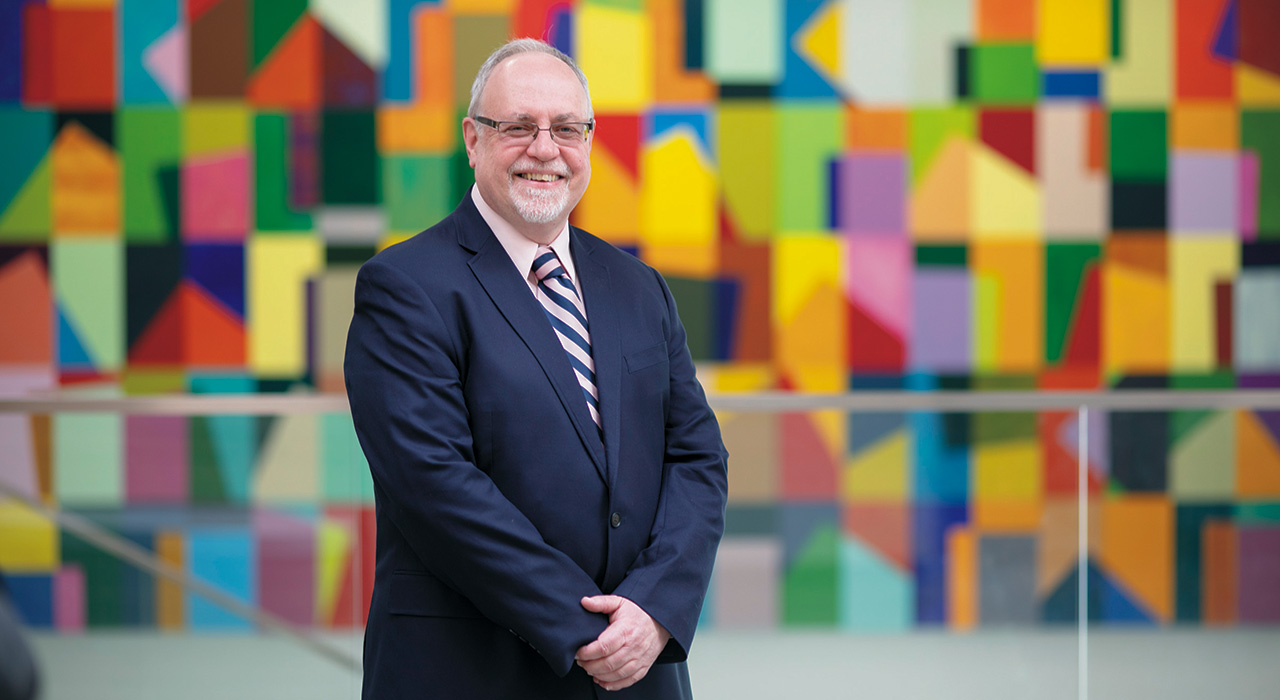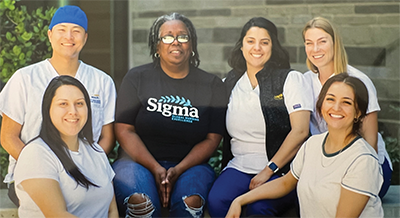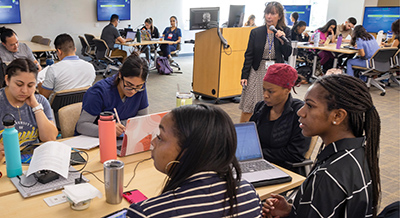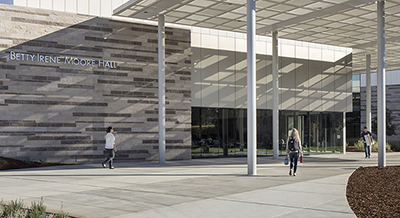With the arrival of fall and another academic school year launched, I find myself reflecting on change. In the seasons, the calendar and in our psyches in this post-pandemic world.
When I arrived as dean of the Betty Irene Moore School of Nursing at UC Davis in July 2019, our annual magazine publication was titled, “Challenge of Change.” When it arrived in mailboxes that October, none of us had an idea of just how much our world would change in five months. Yet, change it did.
“Change is the law of life. And those who look only to the past or present are certain to miss the future.” Those words of John F. Kennedy underscore the necessity for health care educators to instill in future health care professionals a mindset that acknowledges the inevitability of change. Those who embrace that mindset are more likely to be open to adopting and championing innovative solutions that can improve patient care, streamline processes and address emerging health care challenges.
The COVID-19 pandemic pushed academia to re-evaluate the structure of traditional health care education. Lucky for us, this School of Nursing was founded upon the idea that breaking traditional boundaries is required to change the status quo. Guided by a mission to create change agents in health care, we now innovate in how we do that.
In 2022, we launched a new hybrid Doctor of Nursing Practice (D.N.P.) degree program to prepare future family nurse practitioners. The success of that innovative delivery set the stage for development of a second D.N.P. program to educate future certified registered nurse anesthetists (C.R.N.A.). When launched, our program will be one of only six C.R.N.A. programs in California and only the second program to serve the Northern California region. It will also increase and strengthen the C.R.N.A. workforce within the UC Davis Health system, of which we are becoming an indispensable partner, and provide clinicians in rural areas where care is being delayed due to lack of anesthesia workforce.
There is also a lack of mental health providers across the state, particularly in underserved areas. In January, the School of Nursing becomes the administrative home to a multicampus, hybrid program to prepare nurse practitioners across California as psychiatric mental health specialists. Together with our sister UC schools of nursing, we can expand the impact we have for those in desperate need of mental health services statewide.
Our region is fortunate to not have been affected by a nationwide shortage of nurses. To ensure that continues, we recently received a $6 million grant to prepare new nursing faculty and address the health equity gap in America’s underserved communities. As the School of Nursing is rooted in community-based solutions, this program relies on collaboration with academic, employer, nurse professional and workforce development organizations. The fact that our team was awarded the largest grant in the nation from the Department of Labor’s Nursing Expansion Grant Program is a testament to our vision and ability to fill a critical need.
Vision, innovation, change. The trio drives our School of Nursing. Thanks to a resilient faculty and staff, and alumni who impact practice and research, the school continues to realize its mission of bold system change and preparing change agents for the future of health care. For us, change is about building the capacity to do something innovative that anticipates how we prepare our future health care providers to meet the needs of a health system not yet envisioned.





